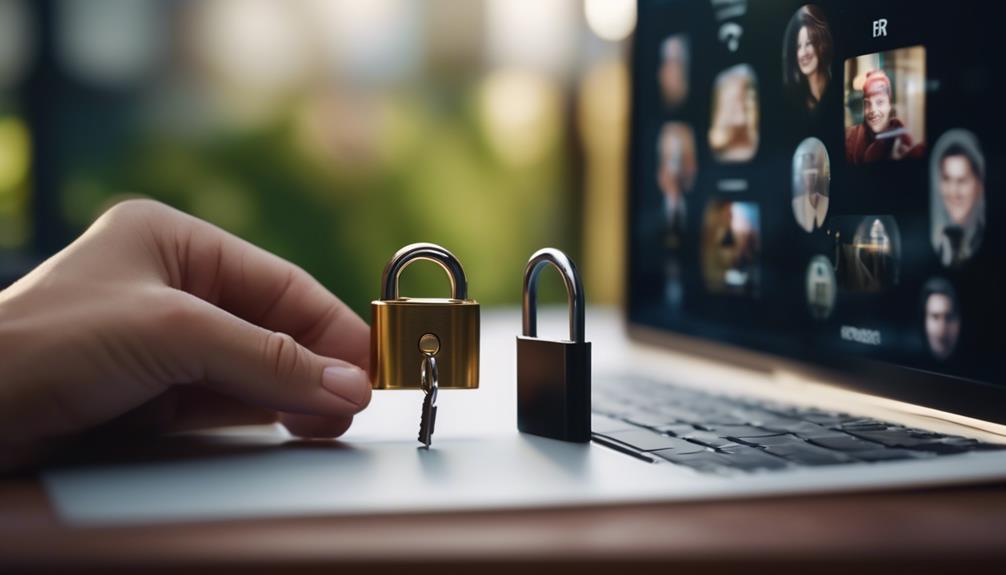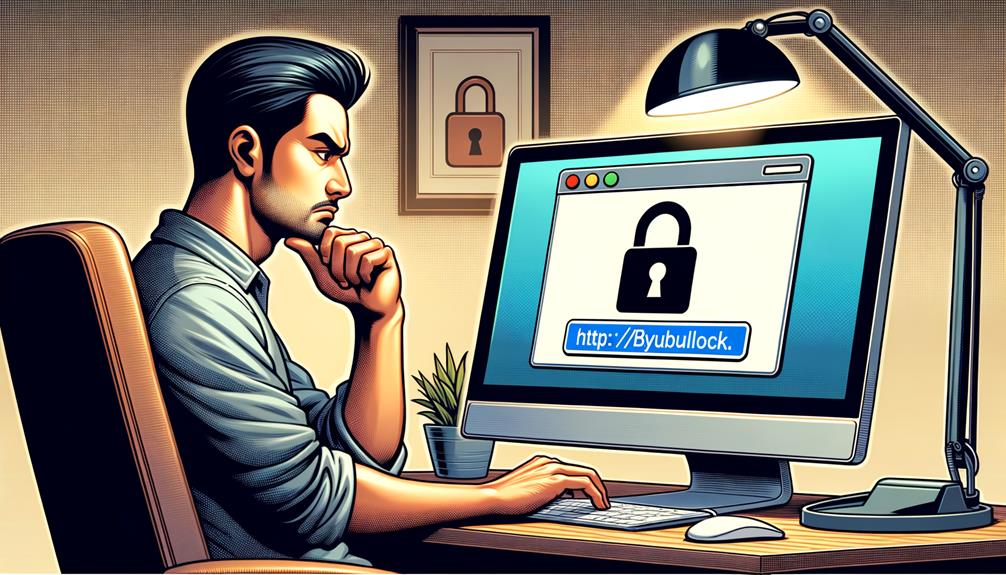In today's interconnected world, individuals must be cautious of unsolicited messages and verify the sender's identity. Furthermore, they should be wary of urgent requests. These simple yet crucial steps can help protect against falling victim to instant messaging scams. However, there are more key tips to consider when guarding against such threats. For instance, by understanding the signs of phishing attempts and learning how to protect oneself, one can effectively navigate the complexities of instant messaging security. Immediate actions are also essential in this regard.
Recognizing Phishing Attempts in Instant Messaging

When using instant messaging, beware of urgent messages pressuring you to click on links or open attachments. Phishing attempts often impersonate trusted companies, aiming to deceive users into disclosing personal or financial information. These messages may contain fake invoices or payment links, tricking individuals into unauthorized transactions or revealing sensitive data. Recognizing phishing attempts is crucial in preventing identity theft and financial loss. To avoid falling victim to such scams, verify the legitimacy of the sender or company before taking any action. Refrain from confirming personal or financial information in unsolicited requests, as legitimate entities typically do not solicit such details through instant messaging. By exercising caution and skepticism when encountering urgent or suspicious messages, individuals can mitigate the risks associated with phishing attempts in instant messaging.
Key Signs of Instant Messaging Phishing
Key indicators of instant messaging phishing are unsolicited messages from unknown contacts requesting personal or financial information. Be cautious if you notice urgent requests for immediate action, suspicious links or attachments, and poor grammar or spelling errors. These signs can indicate phishing attempts. Protect yourself by staying vigilant and avoiding sharing personal information in response to unsolicited messages. Understanding these key signs can help you avoid falling victim to instant messaging phishing scams.
Protecting Yourself in Instant Messaging

When using instant messaging, caution is key. Be wary of messages from unknown contacts and avoid clicking on unfamiliar links or downloads. These could be phishing attempts to obtain sensitive information. Verify the sender's identity before sharing any personal or financial details. Also, adjust privacy settings to control who can message you for added security. If you encounter suspicious activity, report it to the platform's support team. Your actions can help prevent others from falling victim to potential scams. Stay informed about the latest fraud alerts and guidance from trusted sources like the Federal Trade Commission to recognize and avoid risks.
Immediate Actions Against Instant Messaging Phishing
When dealing with instant messaging phishing, avoid clicking on suspicious links or downloads to protect yourself. Verify the sender's identity before sharing personal or financial information. If you encounter potential phishing, report it promptly to the platform or service provider.
Reporting Instant Messaging Phishing

When you come across potential instant messaging phishing, report it to the platform's abuse or safety center. If a message seems to come from a friend but asks for personal or financial information, it might be a phishing attempt. In such cases, reporting to the platform's abuse or safety center is crucial. Doing so not only protects your account but also contributes to the online community's safety. Forward any suspicious instant messaging phishing attempts to the appropriate authorities for investigation. It's vital to be proactive in reporting these attempts to protect yourself and others. If you encounter an instant messaging phishing attempt, don't engage with the sender and report it immediately. By staying cautious and reporting promptly, you can help prevent phishing scams and secure messaging platforms.
Frequently Asked Questions
What Are 2 Tips to Avoid Phishing Scams?
To prevent phishing scams, individuals should avoid clicking on unsolicited links and opening suspicious attachments. Moreover, they should verify the legitimacy of job offers and be cautious of unrealistic offers.
What Are 3 Things You Can Do to Avoid Online Scams?
To steer clear of online scams, first, prioritize email security. Exercise caution on social media platforms, and ensure password protection. Cyber awareness is crucial for identifying potential threats, and updating security software adds an extra layer of protection. Enabling multi-factor authentication can further enhance security measures.
How Can You Protect Yourself From Scams?
In order to protect yourself from scams, prioritize scam prevention, cyber security, and identity theft. Stay informed about phishing tactics and enable two-factor authentication. Be cautious with personal information to enhance your online safety.
How Do You Avoid Scams Tips?
In order to avoid scams, it's essential to strengthen online security and remain vigilant against fraud. Additionally, outsmart social engineering tactics and adopt savvy safety practices.
Conclusion
In summary, it's vital to remain alert and careful while using instant messaging platforms. By recognizing phishing signs and taking preventive measures, individuals can protect themselves from potential scams. Additionally, reporting any dubious activity can help prevent others from becoming victims. Ensure safety and security in your online communications.



